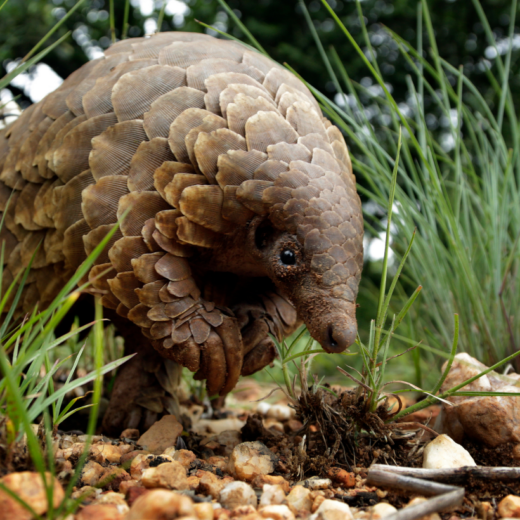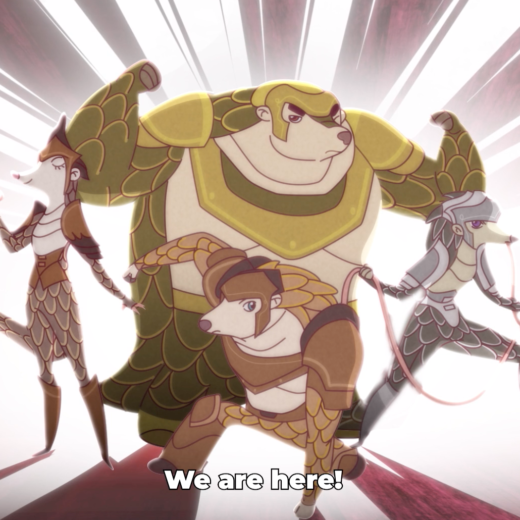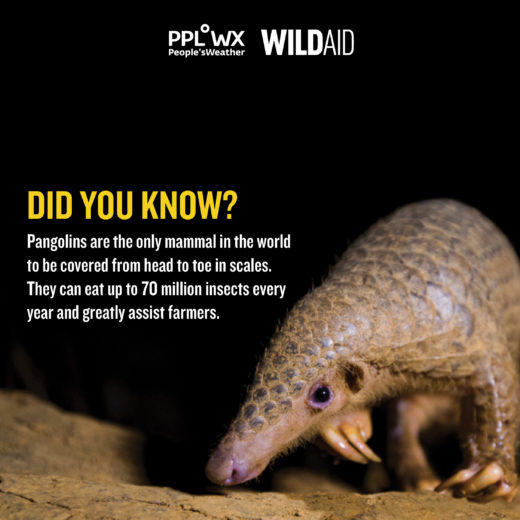
On the heels of a major wildlife seizure in Vietnam and amidst the country’s busiest shopping season, a new interactive campaign from WildAid and CHANGE is making headlines as shoppers are reminded that consuming endangered wildlife products carries a penalty of up to 15 years imprisonment.
The “Buy 1, Get 15” campaign, disguised as potentially the best shopping deal of a lifetime, seeks to raise awareness of increased penalties for wildlife crime that came into effect on January 1, 2018. Its true meaning is a not so subtle warning – buy 1 wildlife product and get 15 years in jail. Only half of those purchasing illicit wildlife products are aware of the relatively new regulations, according to USAID Saving Species Viet Nam. The campaign is timed for Tet, or Lunar New Year, which begins on January 25, when millions of Vietnamese are expected to share gifts.
“Sending a gift for Tet is a beautiful Vietnamese tradition,” says Nguyen Thanh Ngoc Han, Wildlife Project Leader at CHANGE. “However, the occasion has been used to give illegal gifts of rhino horn, elephant ivory and pangolin scales, which originate from false beliefs about medicinal and spiritual benefits. We hope to remind shoppers that if you do the crime, you’ll do the time.”
Since the revised penal code went into effect, the toughest penalty involved a man who received 13 years in prison for illegally harvesting 145 pangolins. Ten other accomplices also served sentences of five to eight years in prison.
To help raise awareness for Vietnam’s stricter penalties, WildAid Ambassadors Miss Universe Vietnam 2017 H’Hen Niê, well-known journalist MC Trac Thuy Mieu, pop singer Quang Vinh, and founder of a major Vetnamese lifestyle brand Helly Tong appear in separate video PSAs and billboards with the message: Avoid buying, giving or receiving illicit wildlife product gifts for the Lunar New Year.
They also attended the campaign’s interactive exhibit at a popular shopping mall in Ho Chi Minh City. On the first day, more than 7,000 shoppers explored an installation of wrapped gift boxes containing cages, or ‘jails’, hiding rhino horn, ivory and pangolin replicas inside.
“They are such impressive gifts,” said an exhibit participant, who initially thought the boxes contained clothing. “I will never forget that I could receive one free ticket to prison if I ever consume illegal wildlife products, and I will never commit such a crime.”
The campaign is generating both media and public attention. Forty-three newspapers covered the launch of the event, including Vietnam’s two major newspapers Thanh Nien and Tuoi Tre. Online, the PSAs and organic posts reached more than 1 million people while 70,000 directly engaged with the content. Roughly 90% of those people expressed that they didn’t know purchasing these wildlife products was illegal. That sentiment was shared at the exhibition.
“I didn’t know that buying one illegal wildlife product could send people to prison for up to 15 years,” said a participant. “The exhibit should be showcased in more places so that the public knows these wild animals are on the verge of extinction and it’s illegal to consume them. We should protect these wild animals.”
Vietnam is not only one of the biggest consumption countries, but also a key hub of international trafficking of illegal wildlife products. Last year, Vietnam seized 9.1 tonnes of ivory and 11.9 tonnes of pangolin scales. In the final days of 2019, 1.7 tonnes of pangolin scales and 330 kilograms of ivory were found hidden inside wooden boxes shipped from Nigeria. The customs manifest listed the goods as high-end lumber, according to Vietnam’s Customs department.
“Wildlife need our help,” says Miss Universe Vietnam H’Hen Niê. “I became extremely disheartened when I learned that elephants and other wild animals, such as rhinos and pangolins, are on the verge of extinction because of misguided notions about health benefits or representations of status. All Vietnamese citizens should actively participate in this campaign and please never purchase or accept gifts made from endangered or threatened animals.”
CHANGE and WildAid have partnered with the Vietnamese government to help raise awareness for, and enforcement of, the new penal code. Beginning in 2018, they hosted seminars and workshops for law enforcement officers, and provided input to the Vietnamese government during the penal code’s drafting. They have also produced public service announcements, infographics, online publications, billboards, leaflets for travelers in border checkpoints and social media campaigns relating to wildlife protection amendments.
“I am pleased that Vietnam has been making an effort to increase awareness and strengthen enforcement of the revised penal code,” said journalist Trac Thuy Mieu. “By engaging shoppers at the point of purchase, I hope people avoid buying gifts made from rhinos, pangolins and elephants, because when the buying stops, the killing can too.”
WildAid and CHANGE would like to thank our media partners Chicilon Media, Target Media, Ureka Media, WE Media, and Movad.
Stay in touch and get the latest WildAid updates.
SIGN UPAbout WildAid
WildAid is a non-profit organization with a mission to protect wildlife from illegal trade and other imminent threats. While most wildlife conservation groups focus on protecting animals from poaching, WildAid primarily works to reduce global consumption of wildlife products such as elephant ivory, rhino horn and shark fin soup. With an unrivaled portfolio of celebrity ambassadors and a global network of media partners, WildAid leverages more than $308 million in annual pro-bono media support with a simple message: When the Buying Stops, the Killing Can Too.
Journalists on deadline may email communications@wildaid.org


